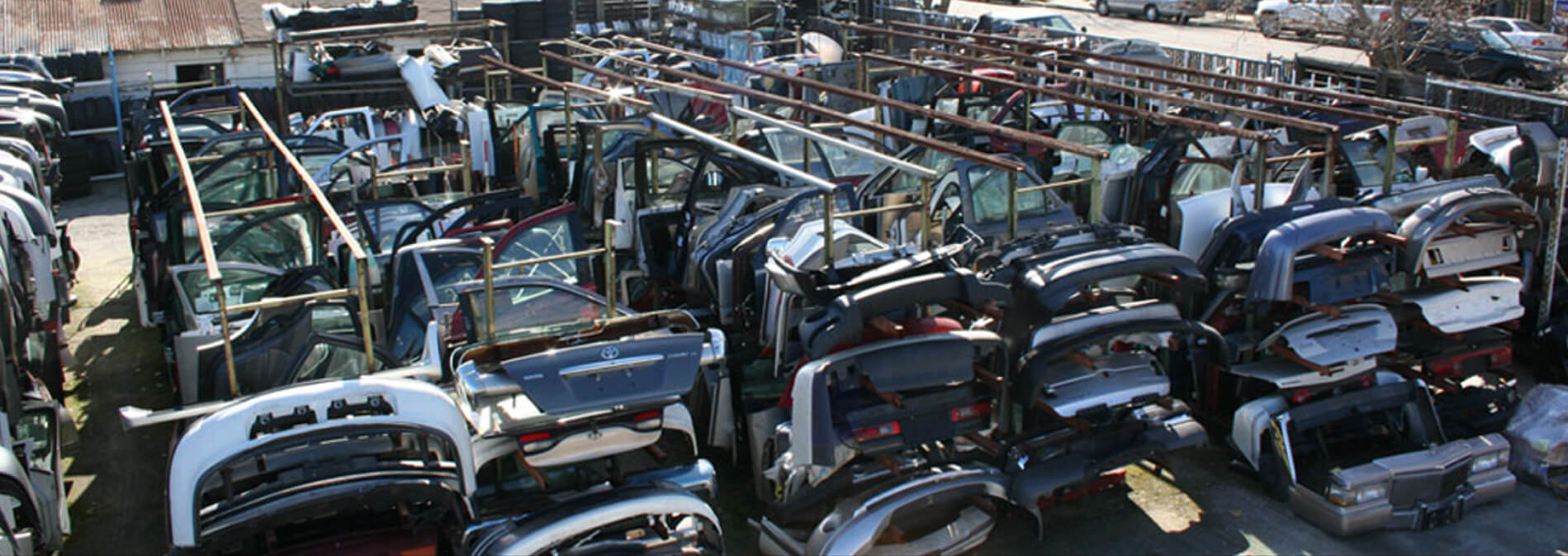Homes Built With Recycled Car Parts
When you think of auto recycling, you often think of a junk yard where you go only to find a cheap replacement part when your car breaks down. But for some people, auto recycling centers are the perfect source of finding quality building materials for their house.
Yes, their house.
Here are three examples of how a new generation of architects is using repurposed car parts to build eco-friendly homes.
The McGee house in Berkeley, California, was built by tiny house enthusiasts and professional architects Karl Wanaselja and his partner Cate Leger.
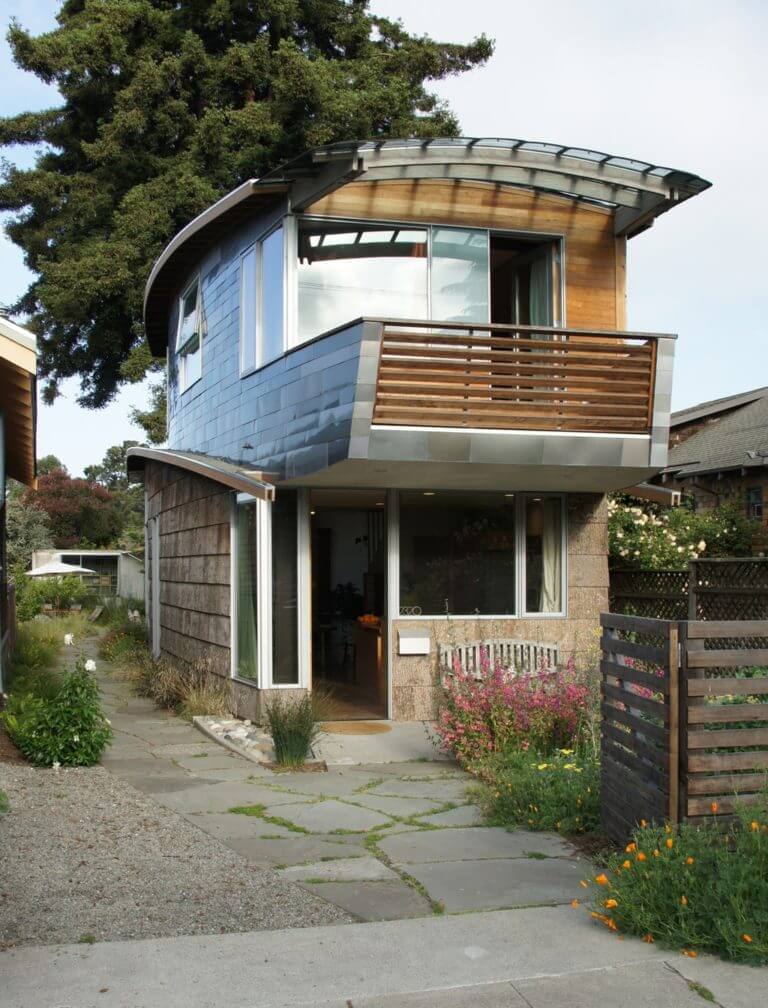
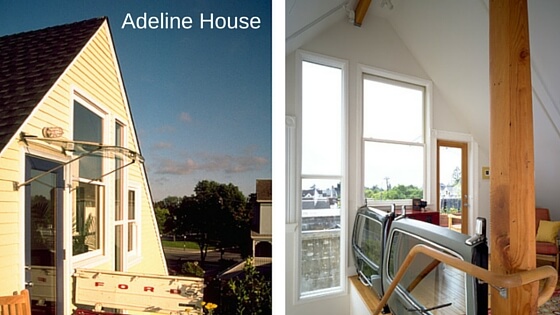 with his love for architecture. The siding of the house is made out of 104 car roofs that Karl picked himself from junk yards all over Berkeley.
with his love for architecture. The siding of the house is made out of 104 car roofs that Karl picked himself from junk yards all over Berkeley.
Drawing inspiration from fish scales, the architect spent months combing through auto recycling centers to find the right shade of gray roofs that he could use to give his house a fish-scale appearance. The result is a 1,140 square-foot, two bedroom house that has now become a favorite field trip destination for eco-architects from all over the country.
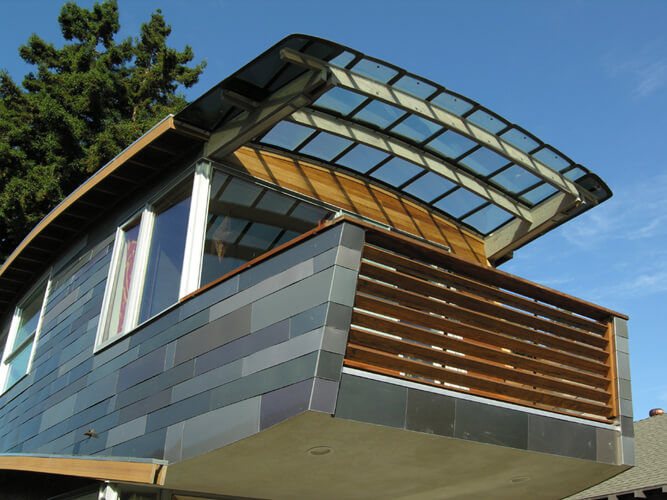
“Selecting the colors of the roofs was almost like doing a painting, with the junk yard as my palette,” Wanaselja told to CNN Money.
Karl speaks fondly of his adventures scavenging for parts for his house. “Not only was I selecting based on condition – no dents, as few knicks as possible, but I also wanted to pick a narrow band of grays and silvers”, says Wanaselja in an interview for Faircompanies.com. “I would go through and make a map of the junkyard, on which I ticked off where the cars were, then I would get my tools, go back, and cut the parts out. The most I ever got in one day is 16,” adds Wanaselja.
The salvaged awnings from the front and the back of the house are fabricated out of side windows sourced from Dodge Caravans, once the best selling minivan in the United States, but now the darlings of junkyards. The advantage is that the awnings need very little maintenance, and are capable of withstanding extreme outdoor weather conditions.
The architects tested different transparencies of Dodge Caravan windows before they decided the clear ones looked best, although they were the hardest ones to find in auto recycling centers, so Karl and his wife could only get two or three at a time.
Karl had been experimenting with car parts for 15 years before he built the house. His Berkley property boasts a separate architecture studio made out of a repurposed shipping container with a car hood as its door, and a shed made entirely out of car hoods and trunks, which he affectionately calls the Part-thenon.
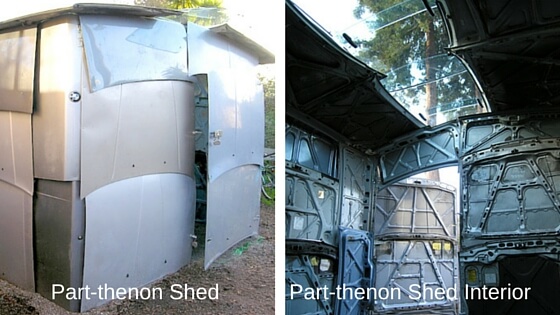

Start by drawing plans of what you envision the finished project to look like, then write down a list of the materials needed before you even lift a hammer. Finally, be patient and persistent.
It took Karl Wanaselja months of visiting junk yards to find the pieces he needed for his home, but the results were definitely worth it – an eco-friendly house that has received an Energy and Sustainability award from the San Francisco chapter of the American Institute of Architects.
Photos courtesy of Leger Wanaselja Architecture.
—————
Want to help contribute to the supply of recycled car parts? Tear-A-Part proudly supports the recycling of cars and pays cash on the spot for every car they receive.


